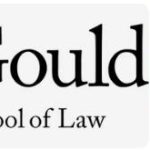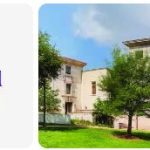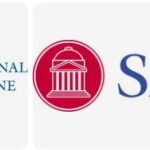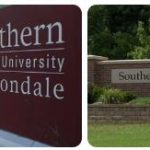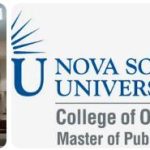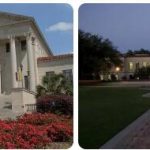The Southern University Law Center (SULC) was established in 1947 as the first public law school in Louisiana. It is located on the campus of Southern University and A&M College in Baton Rouge, Louisiana, and is part of the Southern University System. SULC offers a Juris Doctor (J.D.) degree program and several certificate programs. The law school is accredited by the American Bar Association (ABA) and is a member of the Association of American Law Schools (AALS). SULC has a strong commitment to serving its community through legal education, public service, and scholarly research.
Over the years, SULC has grown significantly with an increase in faculty members and student enrollment. In 2017, SULC had an enrollment of more than 600 students from diverse backgrounds including African Americans, Hispanics, Native Americans, Asians/Pacific Islanders, international students, and veterans. The law school also has an extensive alumni network with graduates working across many different practice areas such as corporate law firms to government agencies. The faculty at SULC are highly qualified professionals with extensive experience in their respective fields. They are dedicated to providing their students with hands-on learning experiences that will help them succeed in their chosen career paths. In addition to traditional classroom instruction, SULC also offers several clinical programs that provide students with practical training experiences such as pro bono work or internships at local law firms or government offices.
Southern University Law Center is located in the state of Louisiana. As one of the leading law programs, Southern University Law Center has a high average LSAT score of 142-149 when recruiting new students. As a return, the median starting salary for law graduates reaches $67,000 per year. See the following table for detailed admissions information and career profiles of Southern University Law Center.
Admissions: Southern University Law Center
The admissions statistics of Southern University Law Center for the 2020-2021 academic year show that the school accepted a total of 240 students out of 1,846 applicants. That is a 13.0% acceptance rate, which is slightly lower than the national average of 14.1%. The median LSAT score for accepted students was 155 and the median GPA was 3.37. The student body is made up of 60% female students and 40% male students with an average age of 24 years old. Around 46% are from out-of-state, while 54% are Louisiana residents. Additionally, 28% are first-generation college students and nearly 32% identify as persons of color. These admissions statistics demonstrate that the law school is committed to creating a diverse student body that reflects the community in which it serves.
| Fall 2019 Admissions and Enrollment Statistics | |
|---|---|
| Total number of full- and part-time applicants | 1,114 |
| Total number of full- and part-time acceptances | 376 |
| Overall acceptance rate | 33.8% |
| Total number of full- and part-time first-year students enrolled | 222 |
| Number of full-time program applicants | N/A |
| Number of full-time program acceptances | N/A |
| Full-time acceptance rate | N/A |
| Number of first-year full-time students enrolled | N/A |
| Number of part-time program applicants | N/A |
| Number of part-time program acceptances | N/A |
| Part-time acceptance rate | N/A |
| Number of first-year part-time students enrolled | N/A |
| Fall 2019 GPA and LSAT Scores | |
| 25th-75th percentile GPA scores for all students | 2.5-3.2 |
| 25th-75th percentile LSAT scores for all students | 142-149 |
| 25th-75th percentile undergraduate GPA for full-time students | N/A |
| 25th-75th percentile LSAT scores for full-time students | N/A |
| 25th-75th percentile undergraduate GPA for part-time students | N/A |
| 25th-75th percentile LSAT scores for part-time students | N/A |
Careers: Southern University Law Center
| Bar Statistics (Winter and Summer 2018 administrations) | |
|---|---|
| State where the greatest number of first-time test takers took the bar | N/A |
| School’s bar passage rate for first-time test takers | N/A |
| Statewide bar passage rate for first-time test takers | N/A |
| Class of 2018 Graduates | |
| Total graduates | N/A |
| Graduates employed at graduation | N/A |
| Graduates known to be employed nine months after graduation | N/A |
| Starting Salaries of 2018 Graduates Employed Full-time | |
| 25th percentile private sector starting salary | N/A |
| Median private sector starting salary | N/A |
| 75th percentile private sector starting salary | N/A |
| Percent in the private sector who reported salary information | N/A |
| Median public service starting salary | N/A |
| Areas of Legal Practice (Class of 2018) | |
| Percent employed in academia | N/A |
| Percent employed in business and industry | N/A |
| Percent employed in government | N/A |
| Percent employed in all judicial clerkships | N/A |
| Percent employed in law firms | N/A |
| Percent employed in public interest | N/A |
| Percent employed in an unknown field | N/A |
| Percent employed in a judicial clerkship by an Article III federal judge | N/A |
| 2018 Graduates Employment Location | |
| Graduates employed in-state | N/A |
| Graduates employed in foreign countries | N/A |
| Number of states where graduates are employed | N/A |
| New England (CT, ME, MA, NH, RI, VT) | N/A |
| Middle Atlantic (NY, NJ, PA) | N/A |
| East North Central (IL, IN, MI, OH, WI) | N/A |
| West North Central (IA, KS, MN, MO, NE, ND, SD) | N/A |
| South Atlantic (DE, DC, FL, GA, MD, NC, SC, VA, WV) | N/A |
| East South Central (AL, KY, MS, TN) | N/A |
| West South Central (AR, LA, OK, TX) | N/A |
| Pacific (AK, CA, HI, OR, WA) | N/A |
| Mountain (AZ, CO, ID, MT, NV, NM, UT, WY) | N/A |
| Employment location unknown | N/A |
| Career Services | |
| (Data appear as originally submitted by this school) | |
| Career services operations | The Office of Career Services assists students and alumni in obtaining meaningful employment opportunities. Assistance is also given in job-seeking skills and interviewing techniques. Information on part-time employment before graduation is also available. |
| Job Type | |
| Bar admission required or anticipated (e.g., attorney and corporate counsel positions, law clerks, judicial clerks) | N/A |
| J.D. preferred, law degree enhances position (e.g., corporate contracts administrator, alternative dispute resolution specialist, government regulatory analyst, FBI special agent) | N/A |
| Professional/other (jobs that require professional skills or training but for which a J.D. is neither preferred nor particularly applicable; e.g., accountant, teacher, business manager, nurse) | N/A |
| Nonprofessional/other (job that does not require any professional skills or training or is taken on a temporary basis and not viewed as part of a career path) | N/A |

